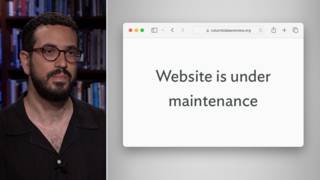Stockholm, June 13, 2024—The Committee to Protect Journalists urges Kyrgyz authorities to immediately drop all charges against 11 current and former Temirov Live staff, ahead of an unprecedented trial due to open on Friday, and end the harassment of the independent press.
“Even as Kyrgyzstan continues its rapid descent into authoritarianism under President Sadyr Japarov, issuing prison sentences for 11 journalists would mark a terrible watershed in a country historically seen as Central Asia’s ‘island of democracy,’” said Gulnoza Said, CPJ’s Europe and Central Asia program coordinator, in New York. “Kyrgyz authorities’ international reputation will be in tatters if the current and former staff of investigative outlet Temirov Live are convicted on evidently trumped-up charges.”
At a preliminary hearing on June 7, judges at the Lenin District Court, in the capital, Bishkek, rejected motions to dismiss the case against Temirov Live director Makhabat Tajibek kyzy, the investigative outlet’s current staff Aike Beishekeyeva, Akyl Orozbekov, Sapar Akunbekov, and Azamat Ishenbekov, and its former journalists Aktilek Kaparov, Tynystan Asypbekov, Joodar Buzumov, Saipidin Sultanaliev, Maksat Tajibek uulu, and Jumabek Turdaliev, and set the first session of the case for June 14, according to reports and Temirov Live founder Bolot Temirov, who spoke to CPJ from exile. The court also extended the pre-trial detention of Tajibek kyzy, Kaparov, Beishekeyeva, and Ishenbekov, those sources said.
The 11 current and former Temirov Live employees were arrested in January on charges of inciting mass unrest, which could see them jailed for up to eight years under Article 278 of Kyrgyzstan’s criminal code. Seven of the journalists were subsequently released into house arrest or under travel bans pending trial.
A local partner of global investigative network Organized Crime and Corruption Reporting Project (OCCRP), Temirov Live is known for its anti-corruption investigations into senior government officials and has more than 280,000 subscribers on its YouTube channels. In November 2022, authorities deported Kyrgyzstan-born Temirov to Russia and banned him from entering the country for five years, after convicting the journalist of using forged documents to obtain a passport, in a case widely regarded as retaliation for his reporting.
Since Japarov came to power in 2020, Kyrgyz authorities have launched an unprecedented crackdown on independent reporting in a country previously seen as a regional haven for the free press.
In January, security services raided privately owned news website 24.kg and opened a criminal case citing “propaganda of war.” In February, a court shuttered Kloop, another OCCRP investigative partner. In April, Japarov ratified a Russian-style “foreign agents” law that could be used to target media outlets and press freedom groups.
This content originally appeared on Committee to Protect Journalists and was authored by Committee to Protect Journalists.
This post was originally published on Radio Free.
